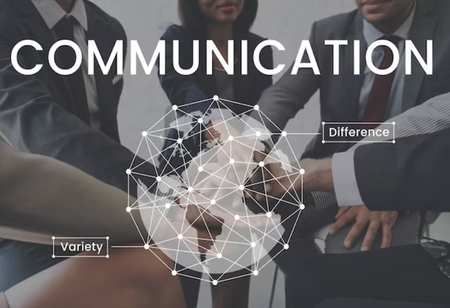Delivering Results: The Art of Effective Communication in Consultancy
By Samrat Pradhan, Correspondent
 Since the time immemorial, a worthwhile communication has stood as the linchpin toward one’s success. Transcending mere exchange of words, it is a medium through which ideas are born, expectations are set, and solutions are curated. Also, a strong foundation of trust can be constructed through transparent and ethical communication. Hence, exploring the critical nuances of communication in consultancy has become imperative to bolster effective consulting practices.
Since the time immemorial, a worthwhile communication has stood as the linchpin toward one’s success. Transcending mere exchange of words, it is a medium through which ideas are born, expectations are set, and solutions are curated. Also, a strong foundation of trust can be constructed through transparent and ethical communication. Hence, exploring the critical nuances of communication in consultancy has become imperative to bolster effective consulting practices.
Tony Robbins, a prominent author, speaker, and coach has rightly said, “To effectively communicate, we must realize that we are all different in the way we perceive the world and use this understanding as a guide to our communication with others.”
Today, the keystone of consultancy hovers around some of the critical aspects underlined below:
Fostering Active Listening Culture
Active listening is more than a virtue; it's a skill one has to develop, especially in the world of business. It includes not just hearing the words but also picking up on the nuances, unsaid anxieties, and understanding the underlying goals. When customers feel fully heard and understood, trust grows, providing the door for the development of truly transformative solutions. Therefore, practicing active listening by immersing yourself in the client's story, asking probing questions, and summarizing their points to guarantee mutual comprehension.
Diversifying Communication Deliverability As Per The Stakeholders Involved
With distinct perspectives and priorities, the realm of consultancy often involves a tapestry of stakeholders. Executives yearn for strategic insights, while managers seek actionable plans, and frontline employees seek tangible improvements. Adapting your message to resonate with each group fosters a sense of inclusivity and ensures that all parties feel heard and valued. Here, the key takeaway would be to segment your audience and tailor your message to address the unique concerns and objectives of each stakeholder group.
Language That Drives Clarity and Simplicity
Consultancy frequently grapples with intricate concepts and multifaceted strategies. However, the power of clear, jargon-free communication cannot be overstated. A consultant’s recommendations should be comprehensible to all, and devoid of impenetrable technical terminology. So to say, employing plain language and relatable analogies to demystify complex ideas is the right way to make them accessible and actionable for all stakeholders.
Enabling Realistic Expectations
Transparency in communication extends to setting forth realistic expectations. By openly acknowledging what can and cannot be accomplished within the confines of the project, one can foster a culture of trust and prevent unwarranted disappointment. Hence, defining project scope, timelines, and deliverables with utmost transparency, while also addressing potential roadblocks and limitations.
A Sound Ear For Feedback
Foster an environment of open dialogue by encouraging feedback from your clients. This not only provides invaluable insights into their expectations and satisfaction levels but also showcases your commitment to continuous improvement. Furthermore, offering constructive feedback to clients cultivates a sense of partnership and collaboration. Key Takeaway: Establish a robust feedback loop, wherein both parties can freely exchange insights and observations, ensuring continuous alignment and progress.
Harvesting An Omni Channel Presence
As the world continues to submerge itself digitally, consultants today have a wide array of communication mediums at their disposal. Right from email to video conferencing, phone calls to face-to-face meetings, each channel brings its own strengths; choosing the right medium for each interaction ensures that the message is conveyed effectively and received as per the desired intention. In this case, consultants must consider the nature of the message, the urgency, and the preferences of the stakeholders when selecting the most suitable communication channel.
Navigating the Human Element
Emotional intelligence serves as the compass in the consultancy landscape. It encompasses an understanding and adept management of not only your own emotions, but also those of your clients. This proficiency empowers you to navigate through challenging situations with grace, empathy, and professionalism, ultimately fortifying trust and rapport. Key Takeaway: Cultivate emotional intelligence through self-awareness, self-regulation, empathy, and adept relationship management.
Mastering the art of effective communication in consultancy is the cornerstone of consultancy excellence. One can elevate their practice to newer heights by prioritizing active listening, customizing messages, maintaining clarity, and employing emotional intelligence. Remember, effective communication isn't just a means to an end. But rather, it's the foundation upon which lasting, impactful client relationships are built.




